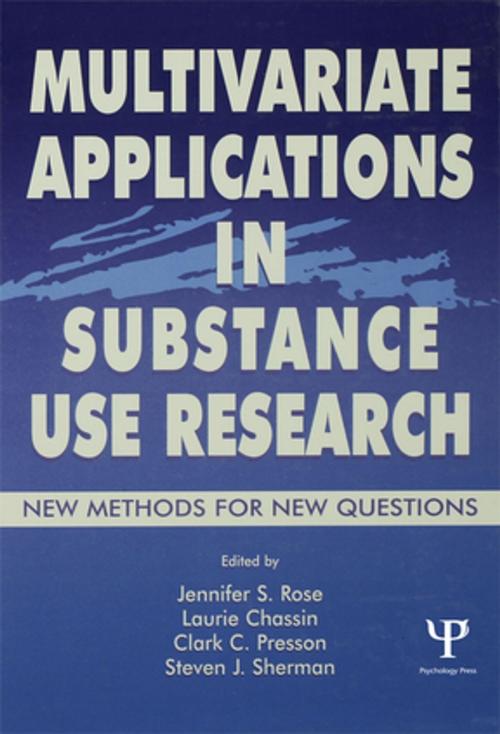Multivariate Applications in Substance Use Research
New Methods for New Questions
Nonfiction, Health & Well Being, Psychology, Research| Author: | ISBN: | 9781135678944 | |
| Publisher: | Taylor and Francis | Publication: | January 1, 2000 |
| Imprint: | Psychology Press | Language: | English |
| Author: | |
| ISBN: | 9781135678944 |
| Publisher: | Taylor and Francis |
| Publication: | January 1, 2000 |
| Imprint: | Psychology Press |
| Language: | English |
This edited volume introduces the latest advances in quantitative methods and illustrates ways to apply these methods to important questions in substance use research. The goal is to provide a forum for dialogue between methodologists developing innovative multivariate statistical methods and substance use researchers who have produced rich data sets.
Reflecting current research trends, the book examines the use of longitudinal techniques to measure processes of change over time. Researchers faced with the task of studying the causes, course, treatment, and prevention of substance use and abuse will find this volume helpful for applying these techniques to make optimal use of their data.
This innovative volume:
- introduces the use of latent curve methods for describing individual trajectories of adolescent substance use over time;
- explores methods for analyzing longitudinal data for individuals nested within groups, such as families, classrooms, and treatment groups;
- demonstrates how different patterns of missing data influence the interpretation of results;
- reports on some recent advances in longitudinal growth modeling;
- illustrates methods to assess mediation when there are multiple mediating pathways underlying an intervention effect;
- describes methods to identify moderating relations in structural equation models;
- demonstrates the use of structural equation models to evaluate a preventive intervention;
- applies epidemic modeling techniques to understand the spread of substance use in society;
- illustrates the use of latent transition analysis to model substance use as a series of stages; and
- applies logistic regression to prospectively predict smoking cessation.
This edited volume introduces the latest advances in quantitative methods and illustrates ways to apply these methods to important questions in substance use research. The goal is to provide a forum for dialogue between methodologists developing innovative multivariate statistical methods and substance use researchers who have produced rich data sets.
Reflecting current research trends, the book examines the use of longitudinal techniques to measure processes of change over time. Researchers faced with the task of studying the causes, course, treatment, and prevention of substance use and abuse will find this volume helpful for applying these techniques to make optimal use of their data.
This innovative volume:
- introduces the use of latent curve methods for describing individual trajectories of adolescent substance use over time;
- explores methods for analyzing longitudinal data for individuals nested within groups, such as families, classrooms, and treatment groups;
- demonstrates how different patterns of missing data influence the interpretation of results;
- reports on some recent advances in longitudinal growth modeling;
- illustrates methods to assess mediation when there are multiple mediating pathways underlying an intervention effect;
- describes methods to identify moderating relations in structural equation models;
- demonstrates the use of structural equation models to evaluate a preventive intervention;
- applies epidemic modeling techniques to understand the spread of substance use in society;
- illustrates the use of latent transition analysis to model substance use as a series of stages; and
- applies logistic regression to prospectively predict smoking cessation.















